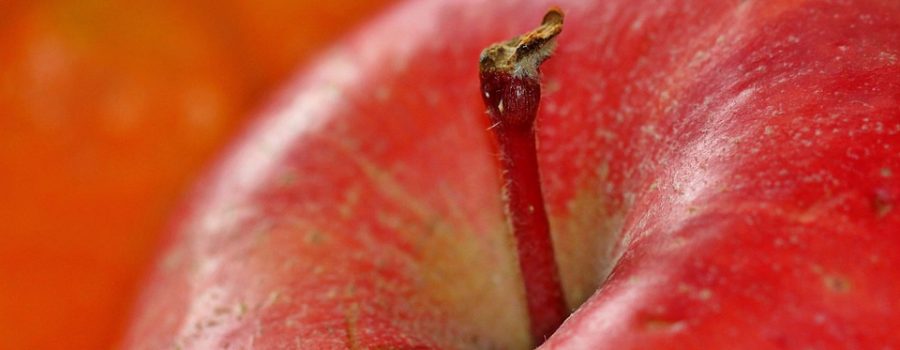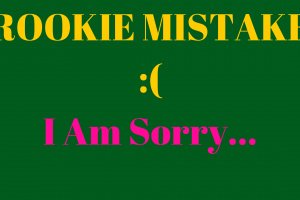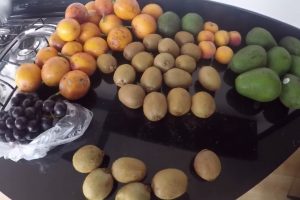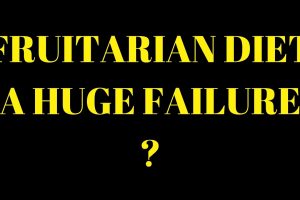I want to write this article in honor of a hero of mine, Mr. Mango Wodzak, and all our beautiful friends from the plant kingdom. The topic at hand, fruitarianism, and how it is different than the fruitarian diet. I will attempt to explain some fairly complex and subtle ideas, I hope you enjoy yourself along the way.
The Fruitarian Definition
As I have stated before in several of my fruitarian blogs, there are multiple definitions for a “fruitarian“, and a “fruitarian diet“. In my humble opinion, they are all equally valid in their own context and setting. That being said, I agree with Mango, and with the Oxford and Cambridge online dictionaries, when I say that the most accurate definition for fruitarian is:”a person who eats only fruit”. Keyword, ONLY.
There are other definitions for fruitarian and the fruitarian diet that “allow” for the diet to include other things such as nuts, seeds, raw vegetables, cooked vegetables and in some cases, animal products. Like I said, these are all valid in their own terms, but not fully accurate in absolute terms. To me, those diets can be considered, at best, fruit-based diets, but not fully fruitarian diets.
The True Fruitarian Diet
When we talk about a “fully fruitarian diet” or a “truly fruitarian diet”, we talk about a diet that consists of fruits and nothing else. This is what Mango Wodzak refers to Eden Fruitarianism in his amazing book Destination Eden. According to Mango, and other authors like Dr. Robert Morse and T. C. Fry (Your Natural Diet), fruit is optimal food for humans, and we can thrive without eating anything else.
I feel blessed to have had the luck to experience this several times in my life. Whenever I consume fruits and nothing else, I feel great. Some people say it is the “sugar high” but I can tell you, to me, it just feels like my natural, righteous state.
Veganism vs. The Vegan Diet
To explore the difference between fruitarianism and the fruitarian diet, I want to first explain the difference between veganism and the vegan diet. Let’s take a look:
Veganism, as defined by The Vegan Society, is “A philosophy and way of living which seeks to exclude—as far as is possible and practicable—all forms of exploitation of, and cruelty to, animals for food, clothing or any other purpose; and by extension, promotes the development and use of animal-free alternatives for the benefit of humans, animals and the environment. In dietary terms it denotes the practice of dispensing with all products derived wholly or partly from animals.”
The vegan diet, on the other hand, is not a philosophy. The vegan diet, on its own, does not focus on ethics or any behavior outside of eating. This means that someone can follow a vegan diet without being a “full on vegan”. To follow a vegan diet, one only needs to abstain from eating all animal products including flesh, eggs, honey, milk and other dairy derivatives. To be a “full on vegan”, however, takes more effort as one also needs to stop using animal products for clothing, transportation, hygiene or entertainment (this includes pets).
To a “full-on vegan”, the difference is huge. The difference is also huge to those who choose to follow a vegan diet without focusing on the ethical aspects of veganism. Why? Because when someone follows a vegan diet for their own health, they are more likely to “cheat” on it. When someone follows a vegan diet because they are “full-on vegans” that believe in animal rights, they are more likely to stick to it for the long run.
Fruitarianism vs. The Fruitarian Diet
We find the same pattern within the world of fruit, diet and ethics, although most people are oblivious to it.
Most “fruitarians” follow a fruitarian diet for health. They reach the diet by focusing on healing, illness prevention, beauty or performance. It seems that only 1 in 1,000 people follow a fruitarian diet for ethics. The only case I know being Mango Wodzak. In his book, Destination Eden, Mango explains that he is a fruitarian, PRIMARILY, for ethical reasons. He believes that plans have the same right to live as humans and animals do. His logic is genius and his arguments are very sound.
Mango believes that every time we eat a plant, or a piece of a plant, we are committing an act of violence that should be avoided. He supports his argument by referring to the research provided in The Secret Life of Plants, which shows that plants have “thoughts” and “feelings” SIMILAR to those of humans. Many people often criticize this book and its findings for being dated and misleading. The findings and statements presented are certainly questionable, yet, they are not unique. There are other books pointing to the same ideas, including What a Plant Knows and a recent best seller: The Secret Life of Trees. These books draw parallels between plant and human senses to reveal that we have much more in common than we realize.
This is why I choose to make a stand and point to the differences between fruitarianism and the fruitarian diet. To me, the true and absolute meaning of fruitarianism focuses on following a fruitarian diet, not only for health, but for ethics as well. I believe that those who stick to fruitarianism and it’s ideals are more likely to stick to the fruitarian diet for the long run, just like vegans who believe in veganism are more likely to stick to the vegan diet.
A New Word for Fruitarianism
Perhaps the word fruitarianism is of no use for this new concept, since so many people use fruitarianism to refer to a diet instead of a philosophy of treatment towards plants. Perhaps Eden Fruitarianism works best, since Mango already made such an excellent job defining this term. Regardless of the word we use, I think it is important that we start to consider The Secret Life of Plants and realize that All Vegans are Hypocrites, Unless they are Fruitarians.









